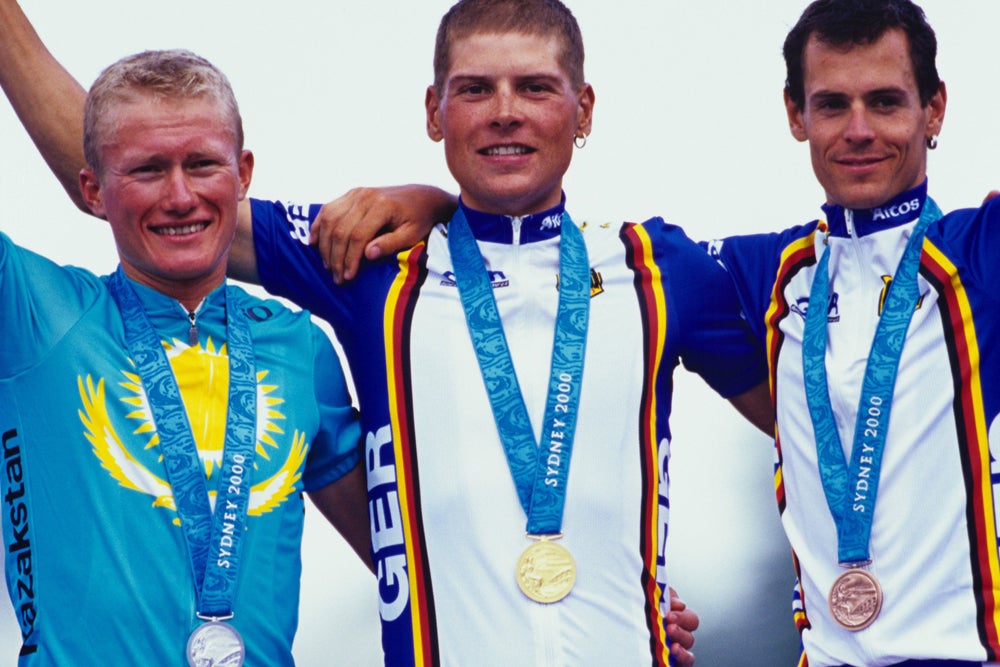German Olympic official says Ullrich may lose Sydney medals

A German Olympic official says Jan Ullrich could stand to lose his gold and silver medals from the 2000 Olympics. Photo: Graham Watson | VeloNews.com
BERLIN (AFP) — Jan Ullrich could yet lose his Olympic medals from the 2000 Sydney Games after confessing to doping with the help of Spanish doctor Eufemiano Fuentes.
The 39-year-old, who won the 1997 Tour de France, told Monday’s edition of German weekly Focus that he “had access to treatment from Fuentes,” but insisted using no other substance than his own blood.
In April, a Spanish court jailed Fuentes for a year for performing blood transfusions on top cyclists.
Thomas Bach, president of the German Olympic Federation and a vice president of the International Olympic Committee, told German daily Die Welt that Ullrich could still lose his road race gold and time trial silver medals.
“We’ll check everything again carefully and meticulously,” said Bach.
Bach said Ullrich’s “so-called confession was nothing more than confirmation of facts that have already been held in Sports court rulings and in court cases.”
Ullrich was found guilty of a doping offense by the Court of Arbitration for Sport in February 2012 and was retroactively banned from August of that year with all results gained since May 2005 erased.
The German was barred from the Tour de France in 2006 amid speculation he had used illegal substances and he retired from cycling in February 2007, denying he had ever cheated.
“However, we will look again exactly at where the starting point was,” said Bach, with an investigation set to look into exactly when Ullrich started doping.
According to the IOC statutes, the forfeiting of any medal has a limited period of eight years, but is not cast in stone, as Lance Armstrong discovered after his doping confession in January.
The American admitted he had used doping substances as far back as 1998 and subsequently the IOC and cycling’s world governing body, the UCI, erased his third place in the time trial at the 2000 Olympics.
His German nemesis could now be damned by his own words.
“At that time, nearly everyone was using doping substances and I used nothing that the others were not using,” said Ullrich in the Focus article.
Kazahk Alexander Vinokourov, Ullrich’s Telekom teammate at the time, finished second in the controversial Sydney road race after what appeared to be collusion with the team’s third rider in the race-winning breakaway, German Andreas Klöden. Vinokourov served a two-year ban for blood doping and returned to win the road race gold at the London Games in 2012. The IOC and UCI could vacate Ullrich’s medals or elevate Vinokourov to the top spot, making him a two-time Olympic champion.